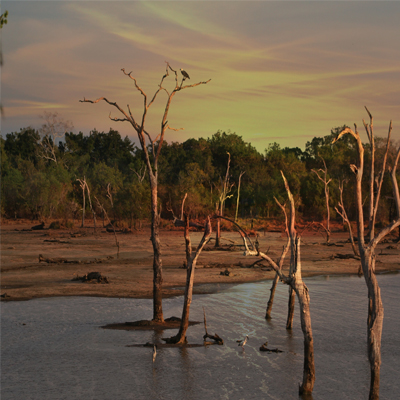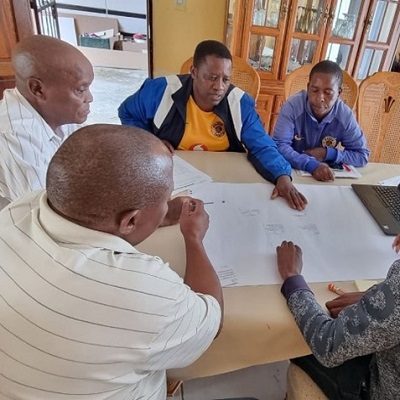Contact Dr Elisabeth Shrimpton
Background
Elisabeth joined Cranfield from the University of Birmingham, School of Civil Engineering where she completed her PhD addressing governance issues around new, transformational infrastructure interventions. A key feature of the work is the integration of justice thinking into engineering, socio-technical systems and decision-making which respects the environment. The study looks at how projects can embrace justice and governance opportunities and challenge the status quo where needed. Vice versa, it also looks at how a governance system could itself flex and adapt.
She has worked on a range of infrastructure projects around climate and weather change including water transfer schemes and was a member of the Pipebots project researching the development and implications of autonomous swarms of micro-robots in potable water. She also undertook a three month secondment to support Natural England, immediately post Brexit, around policy, governance and use of territorial waters including off shore infrastructure.
Prior to her PhD, Elisabeth gained a Master's degree in Disaster Management and Resilience including study in South Africa on the run up to Day Zero and a project on flood risk mitigation in UK coastal communities. Prior to this Elisabeth was a Senior Partner in a national law firm specialising in risk and crisis management.
Current activities
MADIS Project: Management of Disaster Risk and Societal Resilience (MADIS) (cranfield.ac.uk), working with small scale farmers at risk of drought
HyPT Global Hydrogen Production Technologies Center - for responsible hydrogen production at scale
DeSOL solar powered desalination
PRIME Project: New research to investigate impact of rapid move to online public services on minority ethnic communities (cranfield.ac.uk)
Publications
Articles In Journals
- Kaze K, Balta-Ozkan N & Shrimpton EA. (2025). Connecting power to people: integrating community renewable energy and multi-level governance towards low-carbon energy transition in Nigeria. Energy Research & Social Science, 121
- Sarmah T, Balta-Ozkan N, Konak A, Shrimpton EA, Sass KS, .... (2025). Usability of agricultural drought vulnerability and resilience indicators in planning strategies for small farms: a principal component approach. Climate Services, 38
- Shrimpton EA, Sarmah T, Balta-Ozkan N, Malki S, Jelloul A, .... (2025). Unpacking drought impacts and adaptive strategies in Morocco – perspectives from small-scale farmers. International Journal of Disaster Risk Reduction, 128
- Shrimpton E & Balta-Ozkan N. (2025). Insurance for New and Adapted Hydrogen Processes. Engineering
- Sass KS, Batalini de Macedo M, Benso MR, Shrimpton E, Balta-Ozkan N, .... (2024). Enhancing drought resilience and vulnerability assessment in small farms: A global expert survey on multidimensional indicators. International Journal of Disaster Risk Reduction, 110
- de Macedo MB, Benso MR, Sass KS, Mendiondo EM, da Silva GJ, .... (2024). Brief communication: lessons learned and experiences gained from building up a global survey on societal resilience to changing droughts. Natural Hazards and Earth System Sciences, 24(6)
- Shrimpton EA & Balta-Ozkan N. (2024). A systematic review of socio-technical systems in the Water–Energy–Food Nexus: building a framework for infrastructure justice. Sustainability, 16(14)
- Shrimpton EA, Balta-Ozkan N, Sarmah T, Huo D & Marais L. (2024). Re-evaluating drought indicators: learning from small-scale farmers in South Africa. International Journal of Disaster Risk Reduction, 113
- Shrimpton EA, Hunt D & Rogers CDF. (2024). Robots in drinking water: A pipe dream?. Cambridge Prisms: Water, 2
- Bouch CJ, Shrimpton EA, Makana L, Bowman B & Rogers CDF. (2023). Robotic autonomous asset management: benefit/value-based business model creation. Infrastructure Asset Management, 10(2)
- Shrimpton EA, Hunt DVL & Rogers CDF. (2022). A Governance Framework for Implementation of Scientific and Engineering Innovation in Buried Infrastructure Systems. Frontiers in Sustainable Cities, 4
- Shrimpton EA, Hunt D & Rogers CDF. (2021). Justice in (English) Water Infrastructure: A Systematic Review. Sustainability, 13(6)
- Vaughan D, Shrimpton EA, Carpenter G, Skerritt DJ & Williams C. (2021). Marinising a terrestrial concept: Public money for public goods. Ocean & Coastal Management, 213




